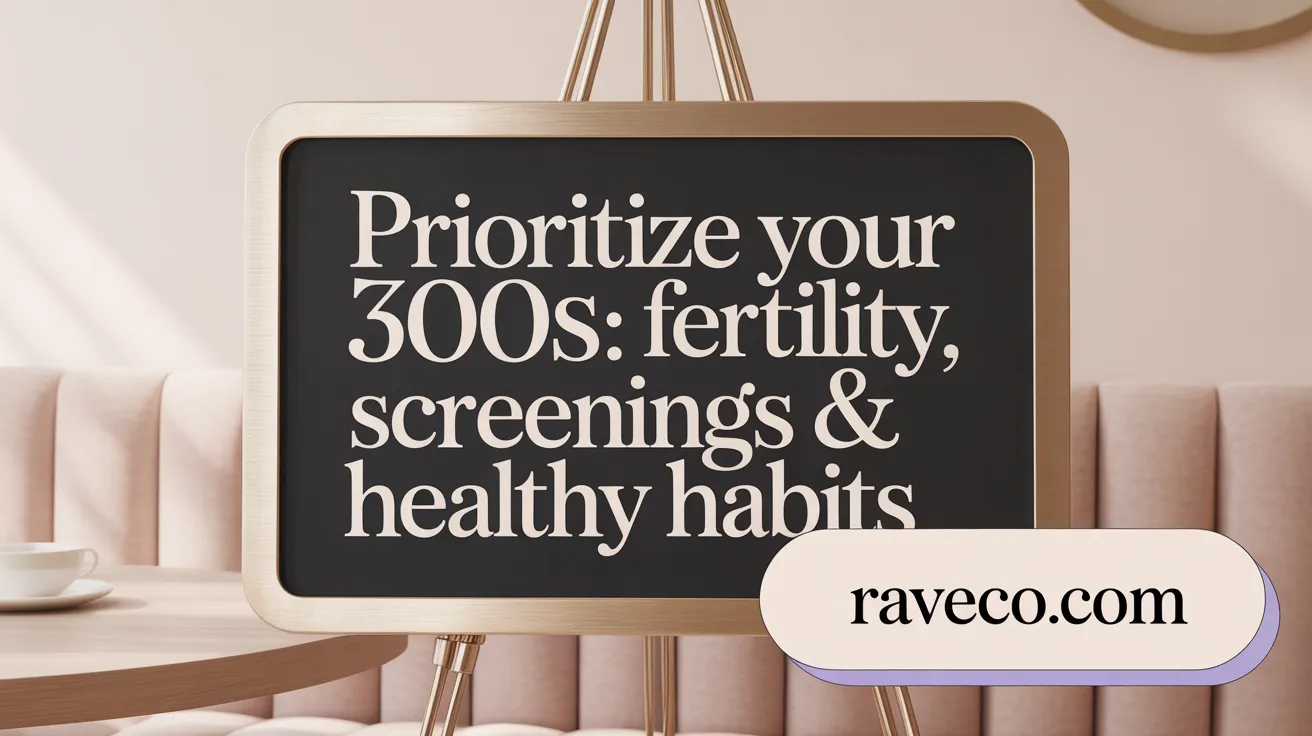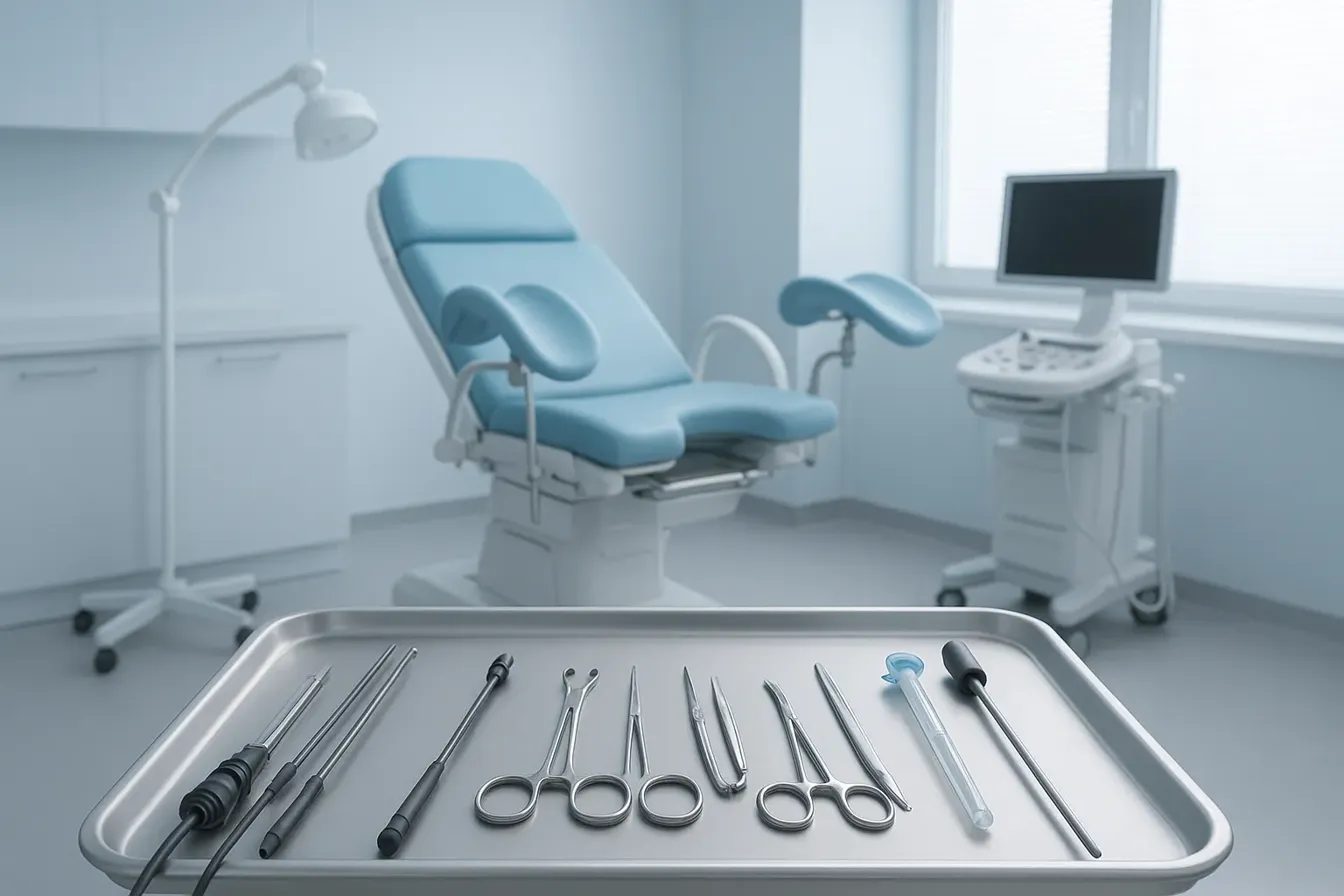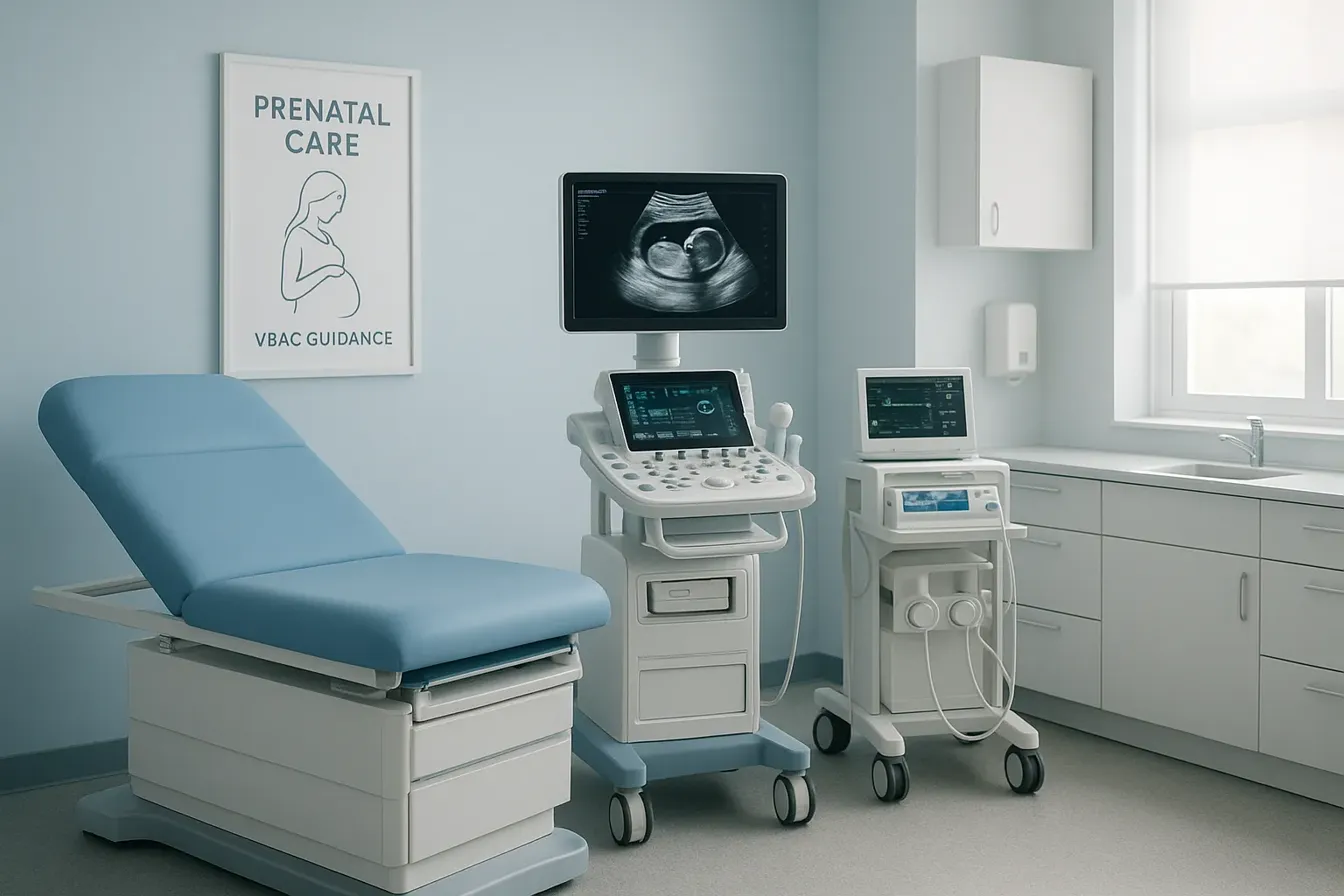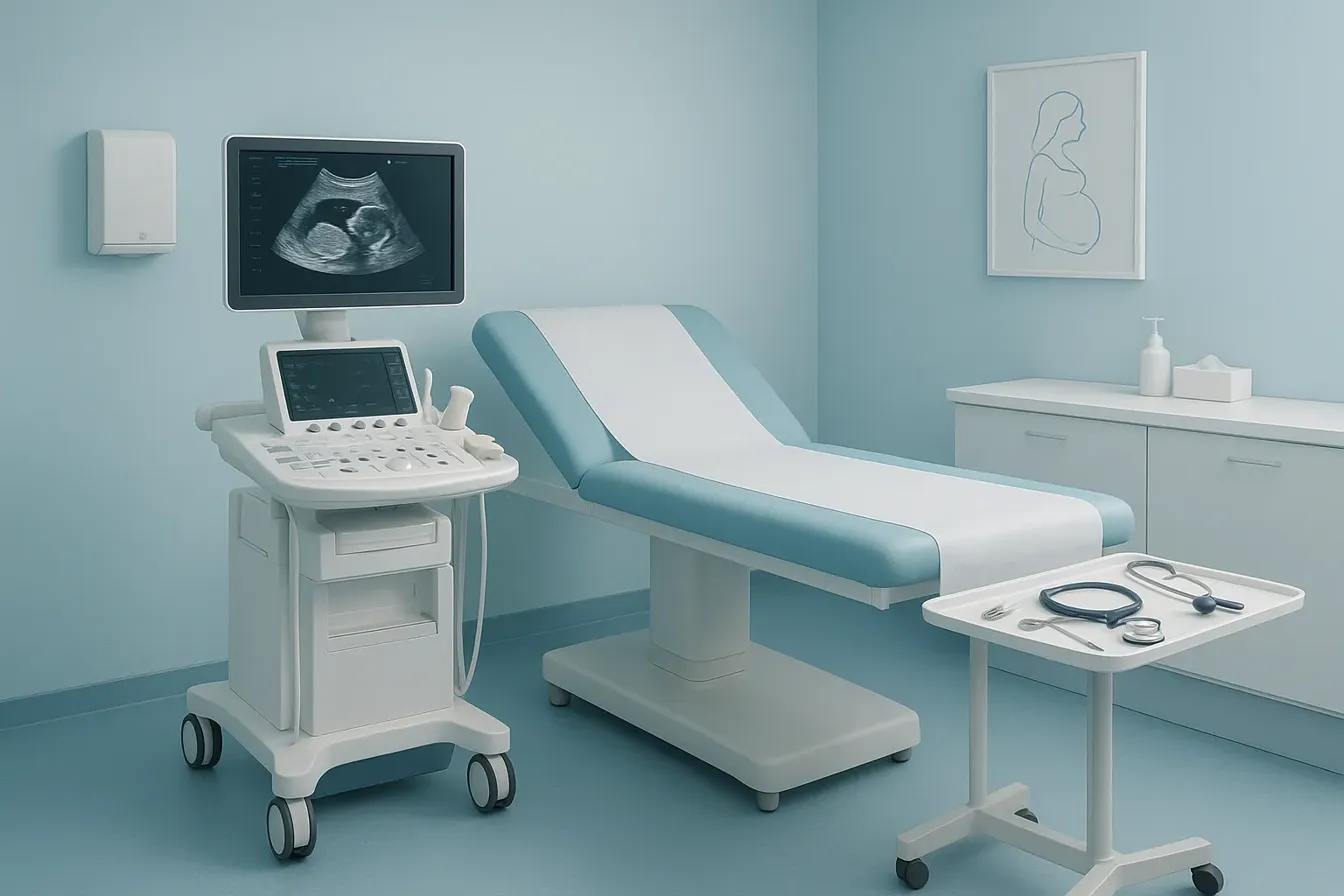Revolutionizing Women's Health: The Power of Minimally Invasive OB/GYN Procedures

Navigating Women's Health Through the Ages
Women’s health is a dynamic journey shaped by biological changes, lifestyle choices, and health care practices that evolve throughout life. Understanding the unique health needs and preventive care requirements at different stages—from adolescence through late adulthood—empowers women to take proactive steps for well-being and longevity. This article explores essential health considerations, screenings, and lifestyle strategies tailored to women’s distinct life phases, highlighting how awareness and tailored care can improve outcomes and quality of life.
Foundations of Women's Health: Early Life and Reproductive Years

What are the essential health practices for adolescent and young adult women?
Adolescence, spanning ages 12 to 18, marks significant physical and hormonal changes such as puberty and menstruation onset. This phase is critical for establishing a foundation of health awareness. Early visits to a gynecologist help educate young women on reproductive health, contraception options, and safe sexual practices (Women’s health across the lifespan, Adolescence Health, Gynecological Check-ups).
HPV vaccination is a vital preventive measure, recommended beginning around ages 11 to 12 and continuing through age 26, with approval for use up to age 45. This vaccine protects against human papillomavirus strains that can cause cervical and other cancers (HPV vaccination recommendations, HPV vaccination guidelines, HPV Vaccination and STI Testing in 20s).
Young women should receive menstrual support and counseling on contraceptive methods, tailored to their individual needs and lifestyles (Reproductive health, Contraception services. Mental health screenings are equally important, encompassing assessments for anxiety, depression, and postpartum depression—for those who are or plan to become mothers (Mental health screening and support, Mental health monitoring for women).
Nutrition plays a foundational role during these years. Emphasis on adequate iron supports blood volume changes and menstruation, while calcium and vitamin D intake promote bone health during peak growth phases (Calcium and vitamin D intake, Folic acid and iron importance. Folic acid supplementation is crucial for those planning pregnancies to prevent neural tube defects (Folic acid supplements for pregnancy).
Preventive screenings begin with annual well-woman exams that include Pap smears starting at age 21, recommended every three years for cervical cancer detection (Pap tests starting at age 21, Cervical cancer screening guidelines, Cervical cancer screening at age 21. Sexually active women should additionally discuss sexually transmitted infection screenings with their healthcare providers (STI screening guidelines, Sexually transmitted infection screenings.
By adopting these practices, adolescent and young adult women establish a proactive relationship with healthcare providers, laying the groundwork for lifelong health management (Raising women's health at every age, Preventive care visits for women).
Health Priorities in Women’s 30s: Fertility, Screening, and Lifestyle

What health considerations should women focus on during their 30s?
Women in their 30s should prioritize establishing a strong relationship with a primary care physician or OB-GYN to support preventive care and early detection of potential health issues. This foundation allows for personalized health management through regular screenings and tailored advice.
Fertility awareness becomes especially important during this decade since fertility begins to decline more rapidly after age 35. Women planning pregnancy should consult healthcare providers about risks such as gestational diabetes and high blood pressure, which are more common in this age group. Discussions may also include family planning options and the potential need for fertility preservation methods.
Screenings recommended in the 30s include Pap smears approximately every three years, or HPV co-testing if applicable to check for cervical cancer. Routine checks such as blood pressure monitoring, skin exams, and mental health screenings should also be maintained. The HPV vaccine is advised through age 26 and may be given up to age 45.
Building and maintaining healthy habits is critical for long-term wellness. This includes consuming a balanced diet rich in fruits, vegetables, lean proteins, and whole grains, engaging in regular physical activity, ensuring quality sleep, and actively managing stress. Women should incorporate exercises that support bone health and cardiovascular fitness.
Mental health is equally significant; women should seek supportive therapies and counseling when needed, particularly during life transitions or stress. Open communication with healthcare providers about mood, anxiety, or other mental health concerns can guide timely interventions.
Maintaining this comprehensive focus during the 30s sets the stage for healthier midlife years and beyond.
Transitioning Through the 40s: Perimenopause, Screening, and Heart Health

What are the main health concerns and screenings for women in their 40s?
During the 40s, women often enter perimenopause, a transitional phase marked by fluctuating hormone levels, particularly estrogen. This hormonal shift can cause symptoms such as hot flashes, mood swings, irregular menstrual cycles, and disruptions in sleep patterns. These changes not only influence quality of life but also raise the risk for conditions like osteoporosis and heart disease. Learn more about Women's health in their 40s and Menopause awareness.
Hormonal changes and symptoms
The variability of estrogen during perimenopause leads to common symptoms including night sweats, weight gain, vaginal dryness, and emotional changes like increased anxiety or depression. Awareness and management of these symptoms are important to maintain wellness. More details on Hormonal changes during menopause and Menopause and hormone therapy can be found here.
Cancer screenings initiation
This decade is crucial for beginning routine cancer screenings. Women should start annual mammograms at age 40 to detect breast cancer early. Colon cancer screening is recommended to begin at age 45, using methods such as colonoscopy or stool tests, depending on individual risk factors. Cervical cancer screening continues with Pap tests or HPV testing. For comprehensive information visit Screenings and immunizations for women and Women's Preventive Services Initiative.
Metabolic and cardiovascular risk management
With age and hormonal changes, metabolism often slows, contributing to weight gain and increased cardiovascular risk. Blood pressure and cholesterol checks become essential, with some women experiencing elevated levels due to hormonal impacts. Monitoring these factors helps prevent heart disease, the leading cause of death among women. Learn more about Heart health in women over 40 and Metabolic changes during perimenopause.
Stress reduction and diet
Stress management is a vital component of health during the 40s. Techniques such as mindfulness, exercise, and social support can alleviate symptoms associated with perimenopause. Dietary adjustments—emphasizing a Mediterranean diet rich in fruits, vegetables, whole grains, and healthy fats—support heart health, weight management, and overall vitality. See Stress management for women and Mediterranean diet and exercise for guidance.
Breast and colorectal cancer screening guidelines
- Breast cancer: Annual mammograms starting at age 40; clinical breast exams as recommended. More info at Breast cancer screening guidelines.
- Colorectal cancer: Screening starting at 45, choices include colonoscopy every 10 years or alternative stool-based tests. Details available at Colorectal cancer screening recommendations.
Regular communication with healthcare providers ensures personalized screening schedules and management plans tailored to each woman’s health profile during this pivotal decade. For a holistic overview, visit Women's Health Every Age Guide and Healthy Living by Age.
Navigating Midlife in the 50s: Menopause, Bone Health, and Cardiovascular Focus

What key health issues arise in women’s 50s and how should they be managed?
During their 50s, women experience significant health changes primarily due to menopause, which commonly begins around age 51. Symptoms include hot flashes, night sweats, vaginal dryness, disturbed sleep, and mood fluctuations. These arise from a natural decline in estrogen levels, which also heightens the risk for osteoporosis and cardiovascular disease (Menopause and Hormonal Changes).
Heart health demands increased attention at this stage. Women should regularly monitor blood pressure and cholesterol levels and adopt a heart-healthy lifestyle, including balanced nutrition, regular physical activity, stress management, and avoidance of tobacco (Menopause and heart health; Heart Health in Women Over 50 . This proactive approach can help reduce cardiovascular risks often intensified by menopause.
Bone health becomes critical as estrogen loss accelerates bone density loss, increasing fracture risk. It is advisable to have bone density scans starting in the 50s, or earlier if there are risk factors like family history or prior fractures. Preventative strategies include calcium and vitamin D supplementation, along with weight-bearing and strength-training exercises to maintain bone strength (Calcium and vitamin D for bone health; Bone density testing guidelines).
Cancer screenings for breast and colorectal cancers should be continued consistently during this decade, following medical guidelines for mammograms and colonoscopy schedules (Breast cancer screening guidelines; Colorectal cancer screening recommendations).
Finally, the 50s are an opportune time to engage in conversations about end-of-life planning, including advanced healthcare directives (End-of-life care planning. This holistic approach supports women in addressing future healthcare preferences and ensures well-rounded care management.
Maintaining open communication with healthcare providers is essential for tailored monitoring and management of these issues to promote health and quality of life in midlife and beyond (Communicating with healthcare providers.
Health and Wellness Strategies for Women Over 60: Cognitive and Physical Health
How should women over 60 approach their health and screenings?
Women over 60 should prioritize early detection of cognitive decline, as risks for conditions like dementia and Alzheimer’s disease increase with age. Routine cognitive screenings become an important part of their health regimen to identify any early signs (Cognitive health in women over 60, Mental health in older adults.
Preventive screenings such as mammograms, colonoscopies, and osteoporosis assessments continue to be crucial but should be tailored individually based on each woman's overall health status (Health screenings for older women, Bone density and osteoporosis prevention, Cancer screenings for women over 50). Not all screenings are equally necessary; therefore, personalized plans with healthcare providers ensure better outcomes (Communicating with healthcare providers.
Social support plays a significant role at this stage. Building and maintaining strong social networks help prevent isolation and depression, common challenges faced by older women. Engagement in community and family activities fosters mental and emotional wellness (Building support systems for women, Mental health and social connections).
Managing chronic conditions, including heart disease, diabetes, and hypertension, remains a priority. Regular medical checkups and adherence to treatment plans are essential for maintaining quality of life (Chronic condition management, Heart health in women over 50.
Physical activity focusing on strength, balance, and flexibility is vital. These exercises help prevent falls—a major health risk for older women—while preserving independence and mobility (Exercise for muscle strength and balance, Strength and balance exercises for older women).
Adequate nutrition, emphasizing calcium and vitamin D intake along with proper hydration, supports bone health and overall wellness in this age group (Calcium and vitamin D for older women, Nutrition advice.
By combining tailored medical care, active lifestyle choices, and social engagement, women over 60 can maintain optimal cognitive and physical health (Manage your health at every age, Women's wellness through life stages.
Understanding Health Disparities and Advocacy Across Life Stages

What challenges do women face regarding healthcare biases and how can they advocate for themselves?
Women, and especially women of color, often face significant gender and racial biases in healthcare. These biases can result in less serious treatment of pain, longer wait times for diagnoses, and overall disparities in the quality of care received. Social determinants such as socioeconomic status, educational background, and systemic inequities further exacerbate these health outcomes. For more on Women's health and gender biases.
To counteract these challenges, self-advocacy is essential. Women are encouraged to be proactive by knowing their family medical history and monitoring their own health closely. Keeping comprehensive medical records helps maintain continuity of care and ensures critical information is communicated effectively to healthcare providers.
Open and honest communication with healthcare professionals is vital. Women should feel empowered to ask questions, express concerns clearly, and seek second opinions when their symptoms are dismissed or underestimated. Strengthening health literacy — understanding medical information and procedures — equips women to make informed decisions about screenings, treatments, and preventive care across their lifespan. See more about Open communication with healthcare providers.
Tailoring care to meet diverse and intersectional needs is also important, recognizing that individual experiences may vary based on race, ethnicity, socioeconomic factors, and other social determinants. By advocating for themselves and engaging in shared decision-making, women can help reduce healthcare disparities and improve their overall health outcomes throughout all stages of life. Learn about Building support systems for women and Raising women's health at every age.
Holistic Health Practices Supporting Women’s Wellness at Every Age
What lifestyle and health practices are recommended for maintaining women’s wellness across all ages?
Maintaining women’s wellness throughout life hinges on consistent, holistic health practices. Key habits include following a balanced diet rich in calcium, vitamin D, protein, and omega-3 fatty acids to support bone, cardiovascular, and overall health. Women benefit from engaging regularly in physical activities such as aerobic exercises, strength training, and flexibility workouts to preserve muscle mass, bone density, and mobility (exercise benefits for women).
Quality sleep, ideally 7 to 9 hours nightly, is crucial for mental and physical well-being (sleep and stress management. Stress management through mindfulness, social connections, and enjoyable activities also plays a vital role in emotional health (stress management for women.
Avoiding risky behaviors like smoking, excessive alcohol consumption, and distracted driving further contributes to long-term health (healthy habits for women).
Preventive care is foundational: regular health checkups enable timely screenings for cancers (breast, cervical, colorectal), heart disease, diabetes, and mental health evaluations (annual health checkups for women. Adhering to vaccination schedules, including HPV, influenza, Tdap, and others based on age and risk, supports disease prevention (immunizations for women).
Tailoring these practices to one’s age, life stage, and individual risk factors ensures optimal health outcomes and a better quality of life through every phase of a woman's journey (women's health throughout life stages).
Empowering Women Through Knowledge and Preventive Care
Understanding the evolving nature of women’s health across the lifespan enables timely adoption of preventive screenings, lifestyle modifications, and medical interventions. From adolescence through older adulthood, embracing proactive health management, addressing unique challenges like hormonal transitions and cognitive health, and advocating against healthcare disparities are cornerstones of achieving optimal well-being. Tailored care, open communication with healthcare providers, and sustained healthy habits empower women to not only prevent disease but thrive physically, mentally, and emotionally at every age.





.png)